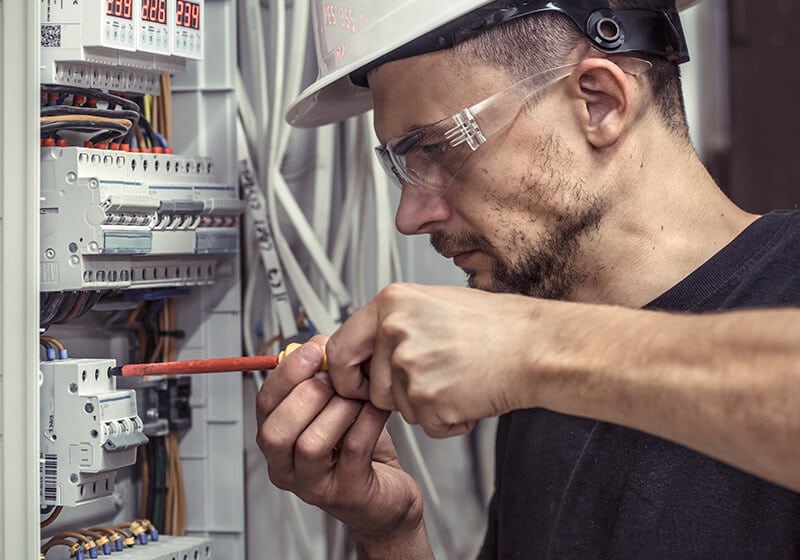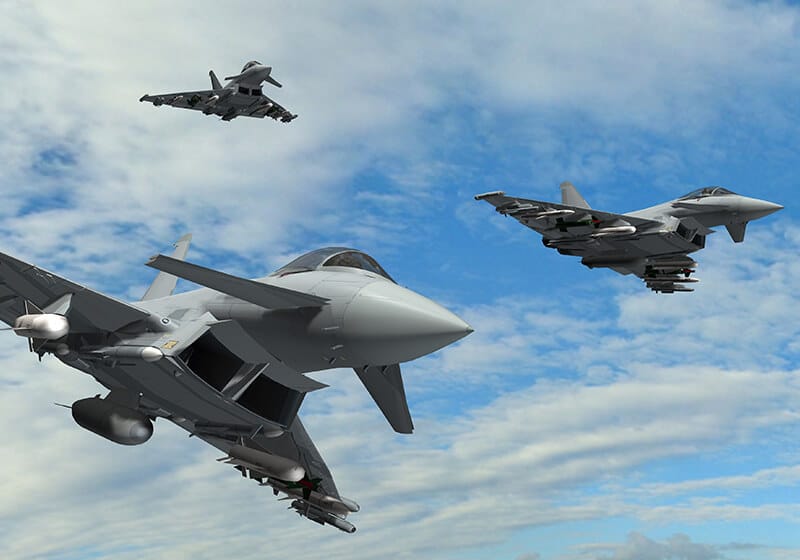
The British aerospace industry is world-leading, boasting an annual turnover of more than £35 billion. Much of that turnover comes from exports to the rest of the world, where British aerospace engineering is recognised for its quality and effectiveness. As with any high-performance industrial sector, the aerospace industry relies on plating, surface coating, and metal finishing to ensure all its components are manufactured to the highest possible standard.
Here at Karas Plating we have been delivering aerospace plating orders to businesses across the UK for more than 70 years. We have our own team of highly-trained and qualified plating technicians who bring decades of experience with them to every job we take on.
What Constitutes the Aerospace Industry?

Many of us think of the aerospace industry in terms of aircraft manufacture, but there is so much more to it than that. As well as general aviation production (including commercial and civil aircraft) the industry also includes unmanned aircraft systems, airport infrastructure, alternative aviation fuels, aviation security, and supply chain solutions, such as repairs, maintenance, and refurbishment.
Electroplating in the aerospace sector

From the sheet metal used in the manufacture of aircraft panels to the smallest electronic components electroplating is key to the success of the aerospace sector. At every stage, the reliability of component parts is essential for the safety of passengers and crew alike. Since air travel is a demanding environment, our aerospace customers expect certain qualities in their plated parts.
Here are just a few of those qualities…
Corrosion resistance

Aircraft are subjected to some of the most extreme environmental conditions in the world, being constantly assaulted by biting winds and rain throughout their flight. Protecting their constituent parts from corrosion is an essential part of the manufacturing process. While many plating techniques have corrosion-resistant qualities, a zinc-nickel alloy is one of the most popular and effective solutions.
Strength

The various components used in aircraft construction need to be strong enough to support the weight of the plane in extreme conditions. Of course, most aerospace engineers select a suitably strong metal for the parts, including titanium, stainless steel, and aluminium. There are several plating techniques that can improve the strength of those component further, including zinc, nickel, and their various alloys.
Heat Resistance

When a plane is in flight, its components are put under severe thermal stress. This is largely because the outside of the aircraft is well below freezing at typical flying heights, while the combustion chamber of the plane can exceed 2000 degrees Celsius. While plane engines incorporate highly-effective colling systems, their components require the right plating solution – usually copper or nickel.
Durability

Aircraft components are put through their paces every time the vehicle is in use. Any weak point in the plane can spell disaster, which is why they are checked so thoroughly prior to each flight. While most plating techniques offer some protection to the substrate, nickel plating is one of the most popular for improving the durability of aircraft parts.
Wear Resistance

Aircraft make use of hundreds of moving parts, many of which spend their time rubbing against one another in high-temperature and high-pressure environments. To minimise the destructive effects of friction, these components need to offer high levels of wear resistance or lubricity. We have several plating solutions to achieve this, including a hard phosphorous coating to resist wear and electroless nickel plating to aid movement.
Improved Conductivity

Accurate electronic equipment and controls form the heart of the aerospace industry, whether they are onboard the aircraft itself, or being used by ground staff to direct planes to a safe landing. These are precision instruments, requiring immediate response times. The best way to ensure this is by plating the electronic components with highly-conductive metals, such as gold or silver.
Oxidation Resistance

As the name implies, metal oxidation occurs when a metal surface reacts with oxygen. Sometimes this can create a protective barrier (notably, if the oxide formed coats the substrate in its entirety, separating it from the atmosphere). All too often, it results in rust, which proves to be extremely dangerous in the aerospace industry. An effective way to prevent this is by applying a zinc coating to act as a sacrificial layer.
Aesthetics

For modern aircraft, how good they look is at least as important as how well they handle. There are many surface coatings and finishes that can be applied to your substrate to produce a final product that is both protective and attractive. Various passivates can imbue the metal with a uniform colour, whilst anodising techniques can provide an adhesive surface well-suited for fast and efficient painting.
Other sectors we cover

When using metal plating techniques in the electrical and electronic sectors, the two key concerns are precision and conductivity. Often you have to risk one in order to benefit from the other. This is where our expertise comes in, balancing the pros and cons of each metal, in order to deliver electronic components that work the way you need them to.
Whether we’re talking about the National Grid, criss-crossing the country providing the nation with its electricity, or more renewable sources of power generation like wind turbines and solar panels, electroplating is essential to the power industry. Components undergo great pressure on a day-to-day basis and must be robust enough to withstand the strain.
The British defence industry utilises many of the electroplating processes that we have perfected here at Karas Plating. Precision plating is required to create reliable defence products. Likewise, they must be resistant to heat, corrosion, and other environmental considerations, since they might be deployed anywhere in the world at a moment’s notice.





